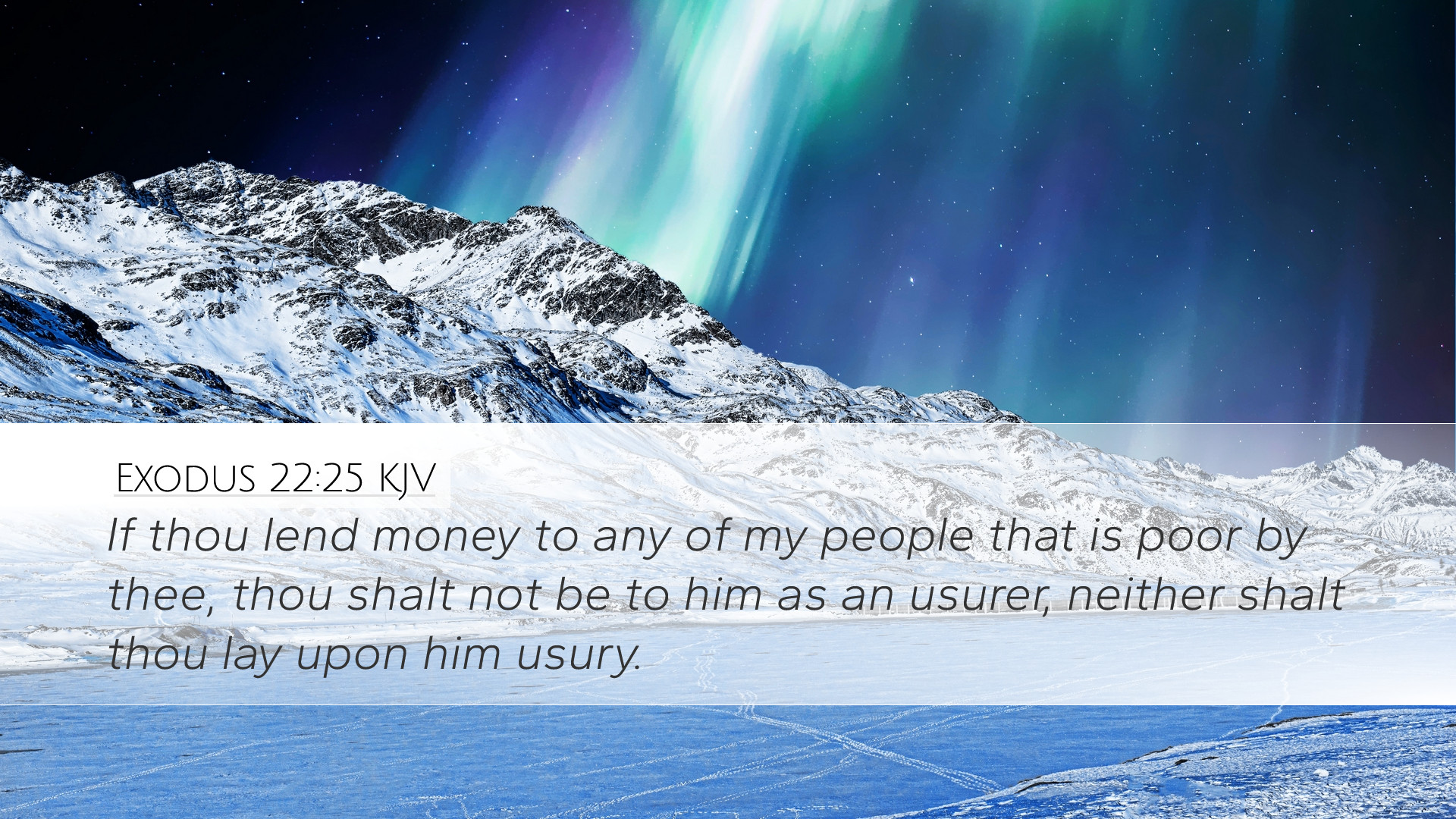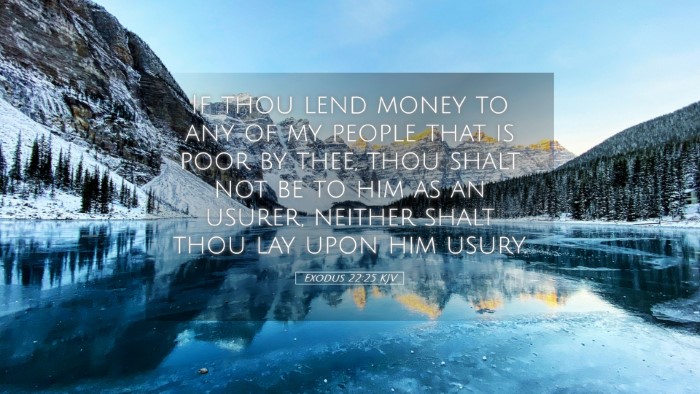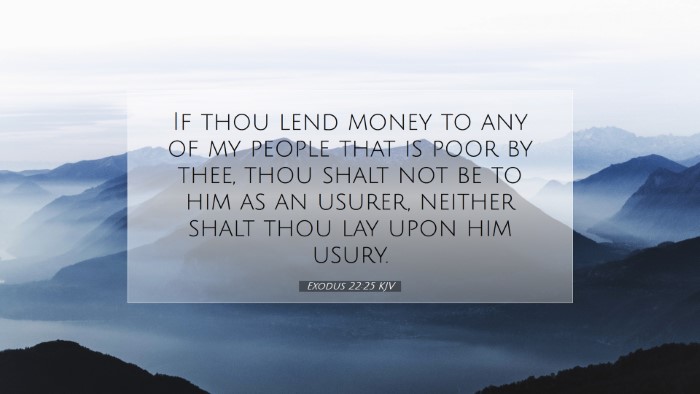Exodus 22:25 - A Comprehensive Commentary
Exodus 22:25 states: "If you lend money to any of my people who are poor among you, you shall not be like a moneylender to him; you shall not charge him interest." This verse addresses the ethical considerations surrounding lending practices among the Israelites, emphasizing compassion and support for the less fortunate.
Historical Context
During the time of Exodus, the Israelites were forming a new community characterized by divine law and ethical living. The socio-economic framework was closely tied to the covenant community's well-being, establishing norms that differentiated them from surrounding nations. The prohibition against charging interest primarily aimed at ensuring that the poor were not exploited during their times of need.
Thematic Insights
This verse underscores several important themes: solidarity with the poor, ethical lending practices, and God's concern for justice and mercy.
-
Solidarity with the Poor:
God commands His people to show compassion towards the poor, emphasizing the communal responsibility towards one another. Being poor is portrayed not merely as a personal condition but as a collective challenge that requires community support.
-
Ethical Lending:
The verse instructs the Israelites to avoid practices typical of moneylenders, who often capitalized on others' misfortunes. By forbidding interest, God highlights the need for charity rather than profit in lending.
-
Justice and Mercy:
God's law reveals His character, which values justice. The prohibition against interest aligns with the broader biblical narrative that emphasizes mercy, kindness, and care for the disenfranchised in society.
Commentator Perspectives
Matthew Henry
Matthew Henry elaborates on this verse by noting its significance in promoting uprightness among individuals. He expresses that lending to the poor without charging interest reflects a heart of charity and love. According to Henry, it symbolizes trust in God's provision rather than reliance on material gain. He stresses that such practices foster a spirit of generosity within the community, aligning with God’s intention for His people to care for one another.
Albert Barnes
Albert Barnes focuses on the treatments of the poor and the integral role of societal norms in Israelite life. He draws attention to how the prohibition against interest serves as a safeguard for vulnerable populations. Barnes points out that the admonition extends beyond mere financial transactions; it emphasizes the relational aspect of lending, calling for a spirit of brotherhood and empathy. The essence of the command is to promote equity and protect those who have been marginalized.
Adam Clarke
Adam Clarke's commentary delves into the implications of this law on the welfare of the community as a whole. Clarke underscores the need for mercy embodied in the acts of lending and borrowing, indicating that these behaviors reflect one’s relationship with God. He emphasizes that forbidding interest ultimately contributes to societal stability, as it keeps individuals from being trapped in cycles of debt that can lead to servitude and social breakdown.
Applications for Today
The principles derived from Exodus 22:25 remain relevant. In modern contexts, where economic disparities continue to exist, the call for ethical lending and compassion towards the poor is ever more critical. Pastors, students, and theologians can pull from this verse to advocate for practices that prioritize human dignity over financial gain.
-
Advocacy for the Poor:
Churches and Christian organizations can leverage this text to foster initiatives that support the financially disadvantaged, urging congregants to engage in acts of charity and community assistance.
-
Microfinance and Ethical Policies:
In developing financial systems, Christians can promote lending practices that are devoid of exploitative interests, seeking to empower rather than impoverish.
-
Community Education:
Educating congregations about financial stewardship and ethics can help individuals make informed choices and support upliftment efforts within their communities.
Conclusion
Exodus 22:25 serves as a timeless reminder of the importance of ethical practices in our dealings with the poor. The insights from Henry, Barnes, and Clarke shed light on the profound implications of this verse for individual hearts and communal lifestyles. As we seek to embody the spirit of this command, we affirm our role as agents of God's justice and mercy in a world often marked by inequality and exploitation.


